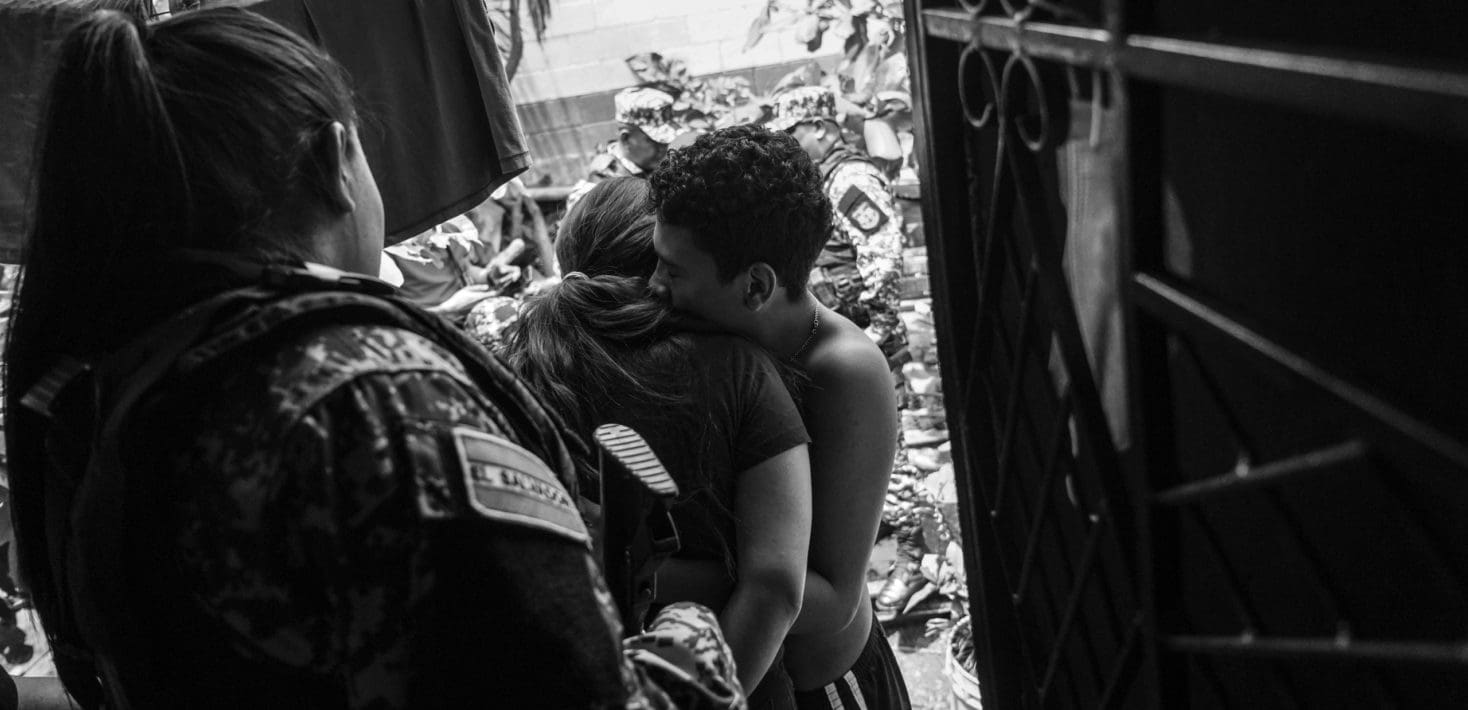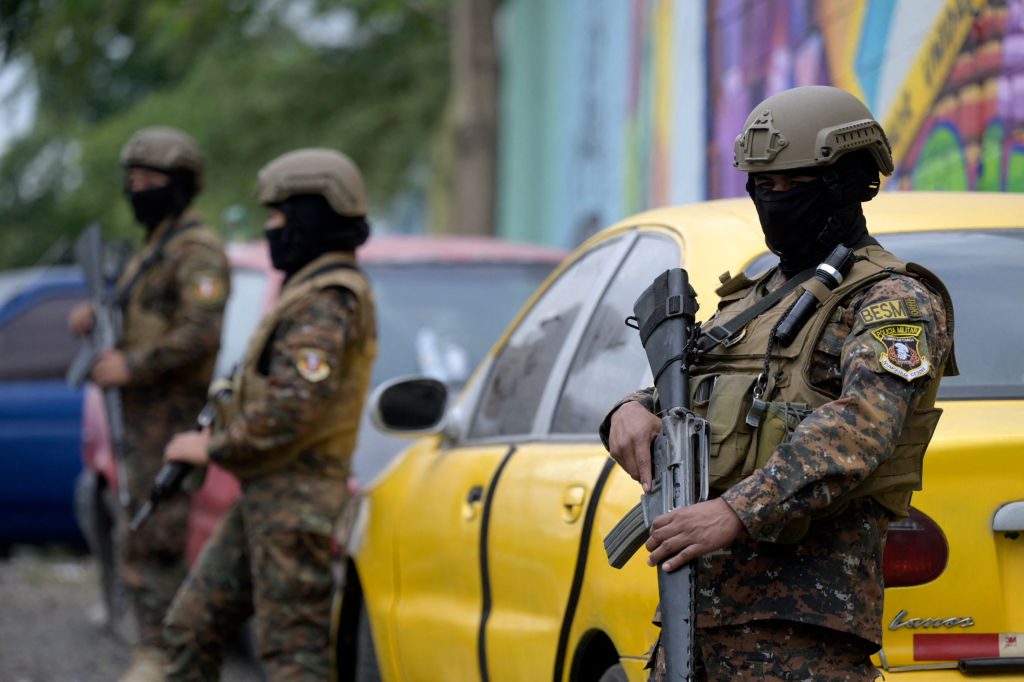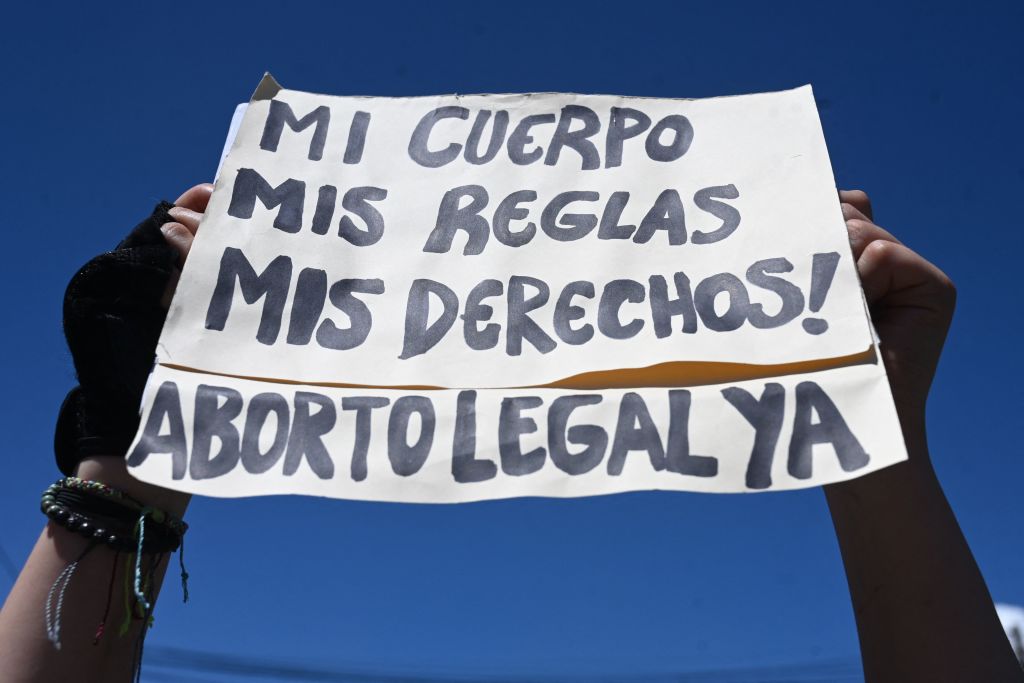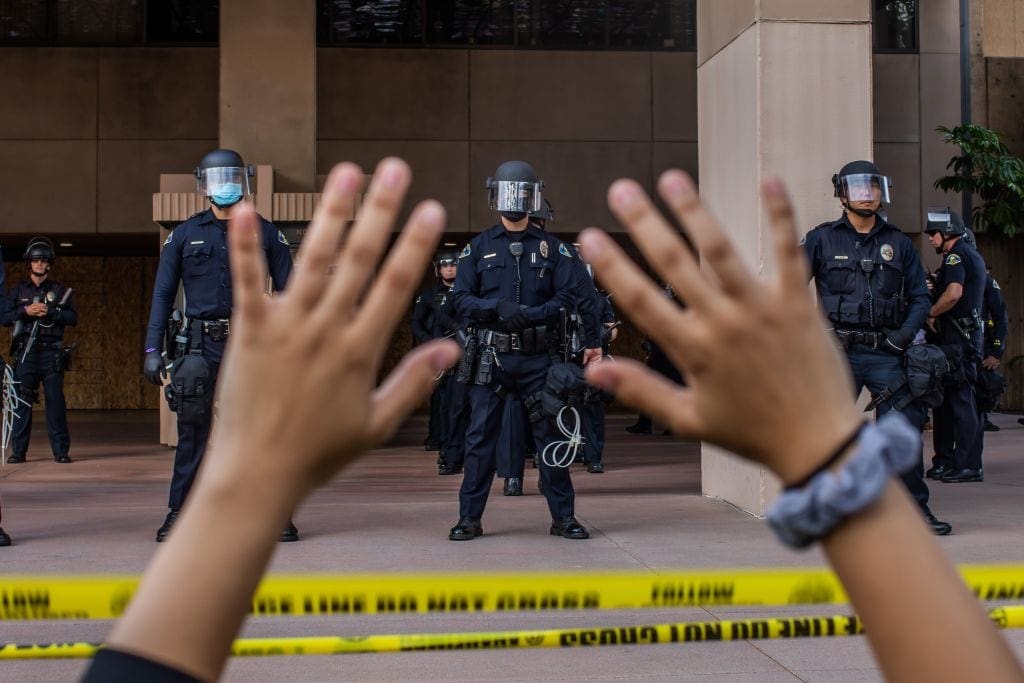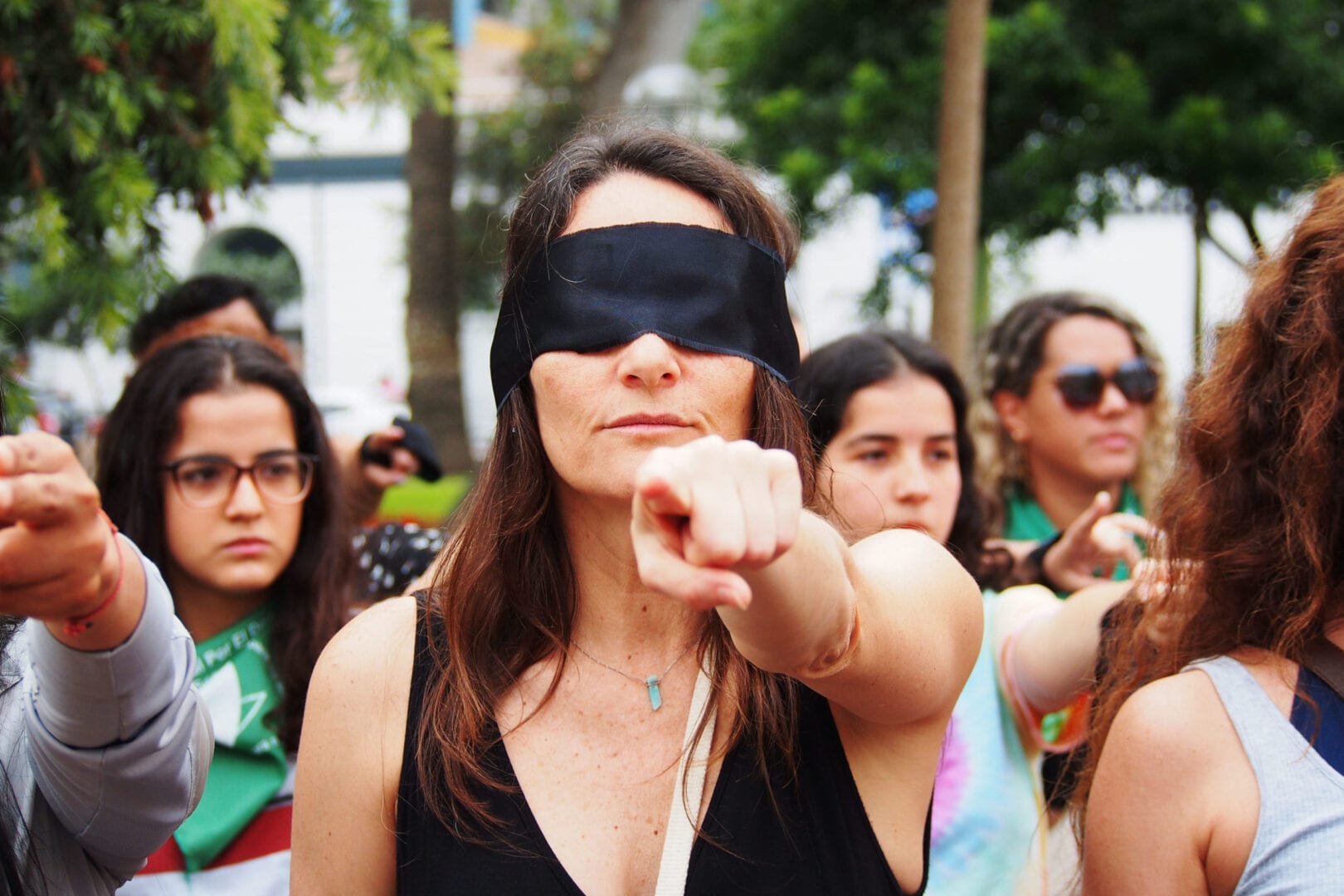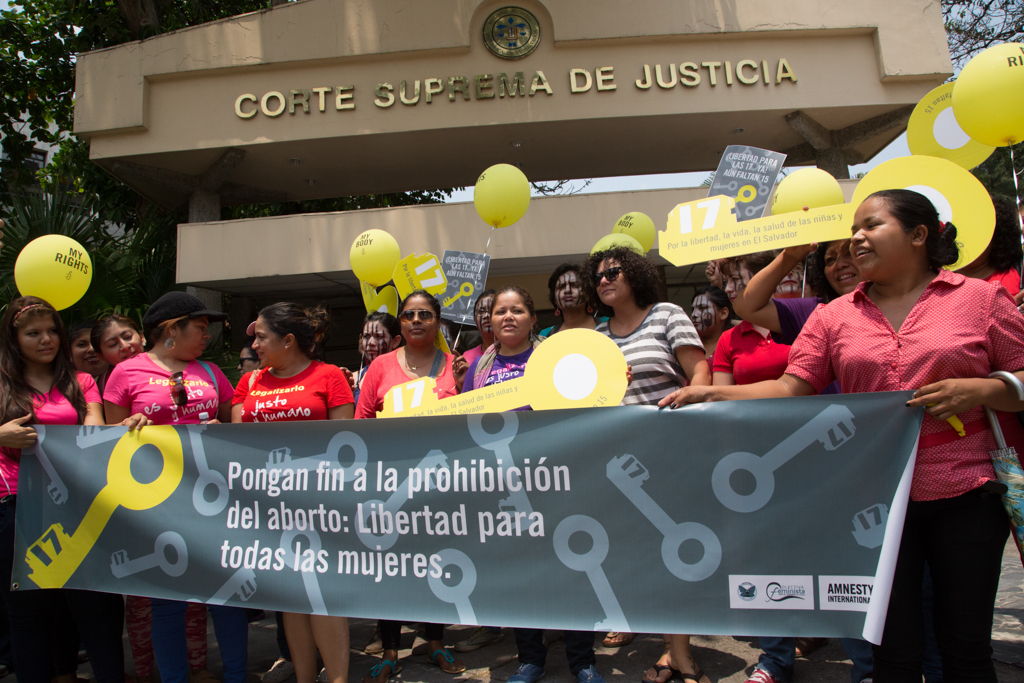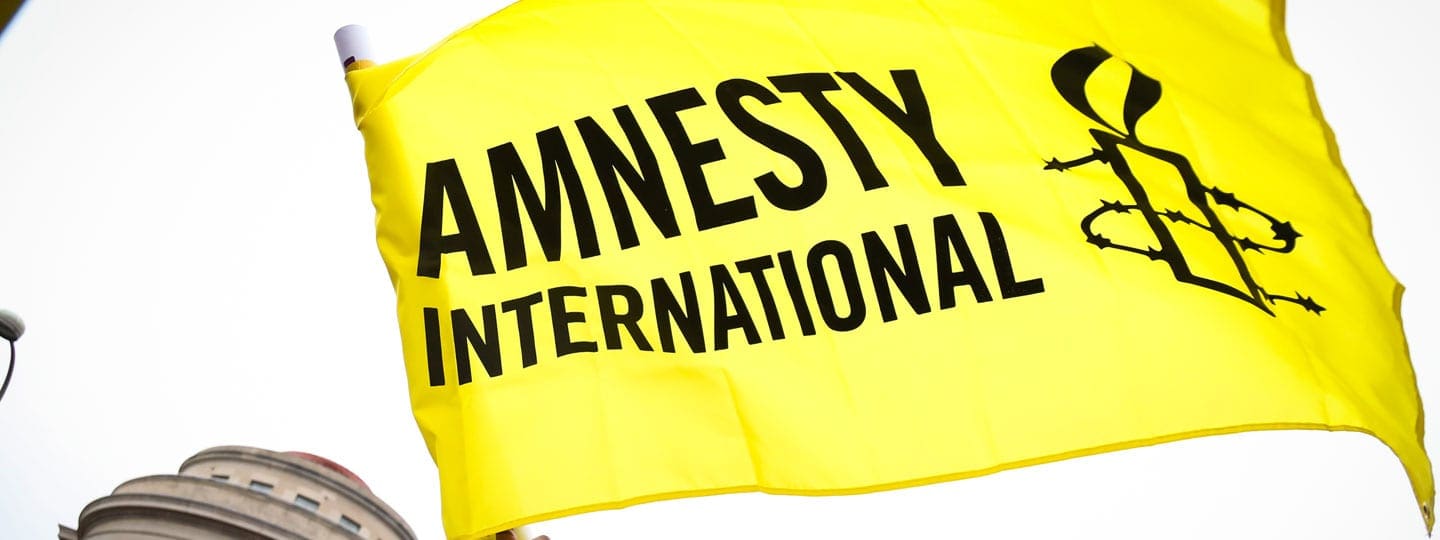The following information is based on the Amnesty International Report 2022/23 with updates from Amnesty International’s “Behind the Veil of Popularity: Repression and Regression of Human Rights in El Salvador” published in December 2023.
overview
In 2022, authorities declared a state of emergency resulting in massive human rights violations, weakening of the rule of law, as well as a continuous and serious deterioration in access to public information. Attacks against human rights defenders and journalists remained entrenched. Authorities failed to pass a law guaranteeing the rights of victims of crimes under international law committed during the armed conflict (1980-1992).
background
In March, following a proposal by President Bukele, the Legislative Assembly decreed and then extended a state of emergency for nine months, which remained in effect at the end of the year, and amended numerous laws, in response to a spike in homicides allegedly committed by gangs.
In September, the president announced his intention to seek re-election, despite criticisms from experts and organizations that the constitution prohibits consecutive re- election.
key issues
Most of the more than 73,000 arrests made during the state of emergency were allegedly arbitrary because they did not comply with legal requirements, namely that an arrest warrant must be issued or the person caught red-handed committing a crime. Some of the arrests were based solely on individuals having tattoos or a prior criminal record or the fact that they were living in an area controlled by a gang.
Thousands of people were indiscriminately prosecuted, most of whom were denied contact with their legal representatives, access to the case file, information on the reasons for their detention or the right to be heard at the indictment hearing. According to local organizations and lawyers, hearings, which were rushed, sometimes dealt with hundreds of defendants at a time. At the end of the year, President Bukele announced the imposition of a military siege on some areas and cities as a complementary measure to the state of emergency. In December alone, the military and police encircled three of the most populous and poorest cities, arresting hundreds of people on suspicion of being gang members. The Legislative Assembly approved criminal and procedural amendments contrary to international law. These included holding hearings and issuing sentences without the accused being present and withholding the identity of the judges, as well as abolishing maximum periods of pretrial detention.
According to local organizations, as of August 2022, 89% of the habeas corpus writs filed in defence of people detained during the state of emergency had not been resolved.
With a total of more than 100,000 prisoners, which represents 1.14% of the general population, El Salvador currently has the highest rate of imprisonment in the world: 1,600 for every 100,000 inhabitants. According to data from the media, in January 2023 the prison occupancy rate reached a high of 300%. However, after the Anti-Terrorism Incarceration Centre (Centro de Confinamiento Contra el Terrorismo – CECOT) was opened and 12,500 prisoners were transferred to it, civil society organizations calculate that the prison occupancy rate has decreased to 148%.
Extreme overcrowding resulted in violations of the right to life and physical integrity and caused serious sanitation problems and shortages of food and basic hygiene supplies, seriously affecting the health of detainees.
Cases were documented where prisoners were ill-treated by prison guards, as well as cases of torture by gang members, including beatings, lynchings and constant threats, which prison officials did not attempt to prevent.
Through October 2023, the Movimiento de Víctimas del Régimen de Excepción (MOVIR) had recorded 175 deaths of people in state custody. However, MOVIR concurs with the opinion of other Salvadoran human rights organizations, such as Socorro Jurídico Humanitario, that these deaths are underreported, as suggested by mass graves have been exhumed after their relatives learned of the death of the deceased months later from non-state parties.
At the beginning of 2022, the organizations Access Now, CitizenLab and Amnesty International confirmed that the mobile phones of several journalists and members of civil society organizations had been infected with Pegasus spyware. While to date it has not been possible to confirm with certainty who was responsible for this surveillance, NSO Group has repeatedly claimed that it only sells the Pegasus technology to governments. Furthermore, the joint investigation performed by Access Now and Citizen Lab identified a user/client operating almost exclusively in El Salvador. There are no concrete, public results that would demonstrate immediate and proactive action by the authorities charged with investigating the use of Pegasus spyware.
In February 2022, the Legislative Assembly approved amendments to the criminal law allowing the use of “digital undercover agents”, which would permit police to implement “necessary” digital undercover operations. The Association of Journalists of El Salvador (APES) warned that vagueness and inconsistencies in the law risked leading to the legalization of abusive surveillance.
In April 2022, the Penal Code was modified to provide for prison sentences of between 10 and 15 years for those who generate “anxiety” or “panic” by reporting on gangs, in an attempt to silence the press. This provision was in force for 18 months and repealed on 1 November 2023. In its 2022 report, the monitoring centre of the Association of Journalists of El Salvador (Asociación de Periodistas de El Salvador – APES) recorded 136 cases of attacks against the press in the line of duty, involving 147 violations and affecting 161 individuals.
National organizations highlighted the deterioration of access to public information and transparency.
During the state of emergency, the president adopted a confrontational public discourse that stigmatized and attacked human rights defenders, international organizations and the independent media.
In the first half of 2022, 61 attacks were recorded against human rights defenders, according to the human rights organization Mesa por el Derecho a Defender Derechos.
A total ban on abortion remained in force. In 2022, at least two women remained imprisoned and six faced legal proceedings on charges relating to obstetric emergencies. In July 2022, a young woman was sentenced to 50 years in prison for an obstetric emergency, the first time the maximum prison term had been applied.
The authorities continued to fail to adopt adequate legislation to fully guarantee the rights of victims of crimes under international law committed during the armed conflict (1980-1992).
There was little progress in investigating and bringing to justice those suspected of criminal responsibility for the crimes committed during the armed conflict.
Relevant Links
- El Salvador: Behind the veil of popularity – Repression and regression of human rights in El Salvador
- El Salvador: One year into state of emergency, authorities are systematically committing human rights violations
- Eviscerating human rights is not the answer to El Salvador’s gang problem
- El Salvador: President Bukele engulfs the country in a human rights crisis after three years in government
- El Salvador: State of emergency has created a perfect storm of human rights violations
- Open Letter to President Nayib Bukele of El Salvador
- El Salvador: Violence merits a comprehensive response that respects human rights
- Amnesty International verifies the use of Pegasus spyware for the surveillance of journalists in El Salvador
- Further information about Pegasus spyware


